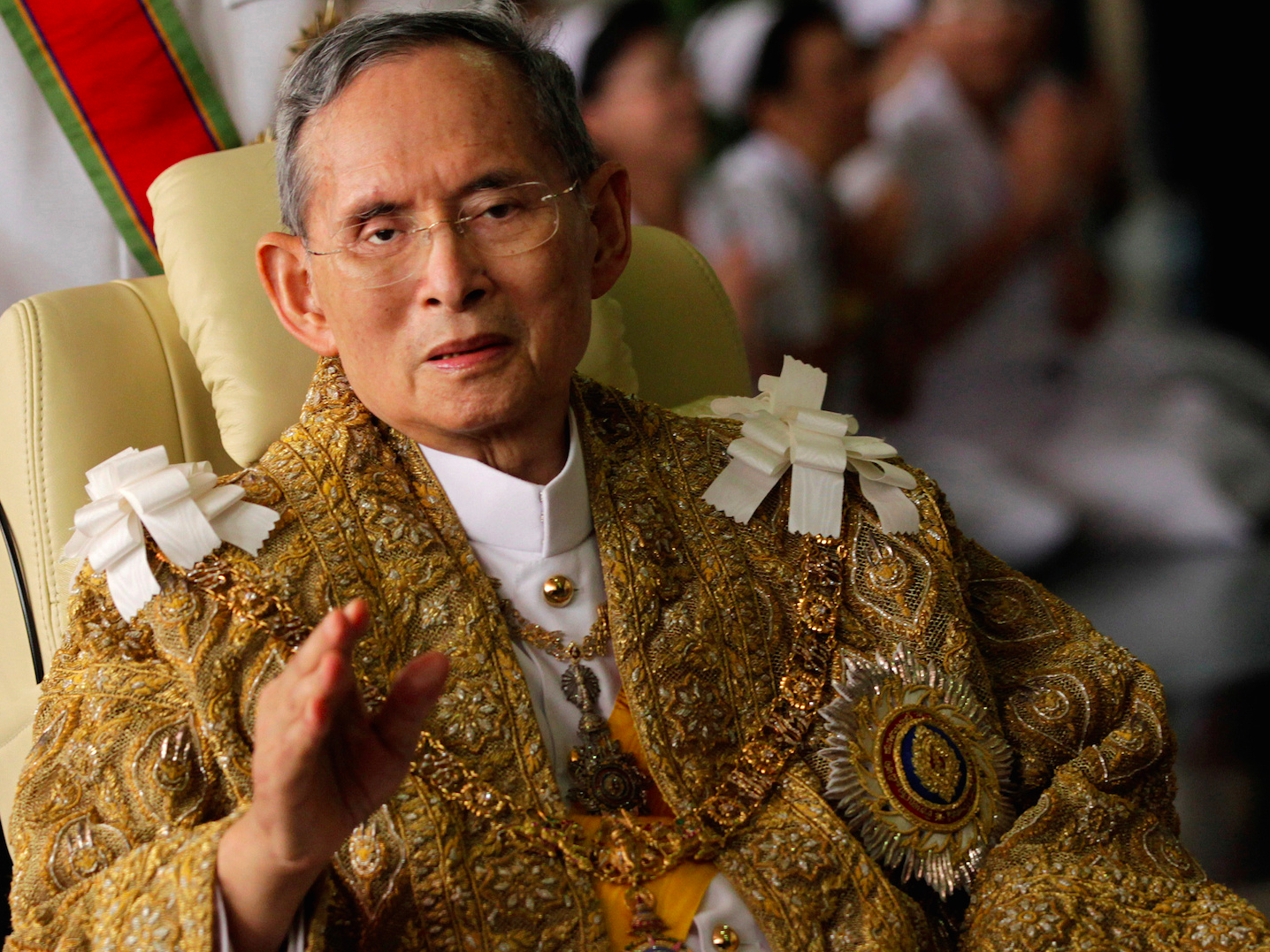Thailand’s Royal Palace says King Bhumibol, the world’s longest-reigning monarch, has died at age 88.
The palace said the king died peacefully on Thursday at Bangkok’s Siriraj Hospital.
The palace statement did not mention details of mourning or succession.
Bhumibol Adulyadej (pronounced poo-mee-pon ah-dun-yaa-det) became king in 1946 and was revered in Thailand as a demigod. He anchored the Southeast Asian country through violent upheavals at home and communist revolutions next door with a blend of majesty and a common touch.
The once vigorous king had withdrawn from public life over the past decade because of his ill health. He lived at a Bangkok hospital and had been notably silent about the political upheaval that has shaken Thailand in recent years.
Following earlier reports from the palace that the king was in poor health, the Thai baht tumbled by nearly 1% earlier in the week. Additionally, the SET Index finished 2.5% lower after falling by as much as 6.9% on Wednesday.
As for what this means for Thailand, analysts have mixed views. Krystal Tan and Gareth Leather at Capital Economics argued in a note to clients: "The death of Thailand's highly-revered king will plunge the country into a state of mourning, and also deep political uncertainty. There is a risk that political tensions flare up, triggering a slowdown in economic growth."
Others think that while Thailand could see some uncertainty in the markets, the political transition will be smoother.
"In the event of the King's passing, we would expect more financial market volatility as well as a period of economic gridlock amid an extended official mourning period," analysts at BMI Research said earlier in the week.
"However, our core view is that the Royal succession is likely to be relatively smooth with the junta maintaining a tight grip on power enabling a relatively smooth transition for Crown Prince Vajiralongkorn to take to the throne."
The Thai baht was up by 0.2% at 35.600 per dollar as of 8:13 a.m. ET.

